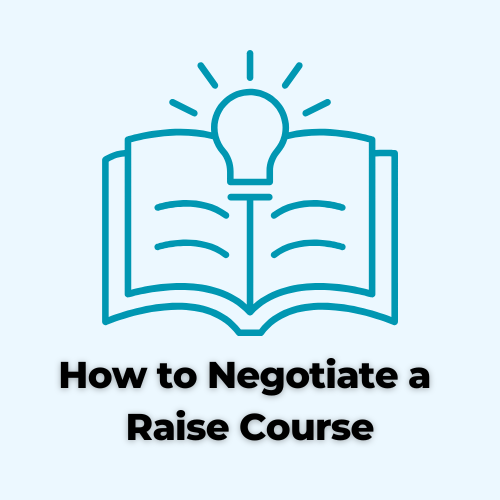What to Say When Job Applications or Recruiters Ask About Your Salary Expectations
Chatting with a recruiter about a potential job can be nerve-wracking and intimidating. That’s why many candidates willingly answer every question a recruiter asks, including those about salary expectations and current compensation.
But we strongly advise against disclosing any information about your current or expected compensation, because it can prevent you from getting a fair offer. Learn about that more here.
Knowing how to deflect recruiter’s compensation questions confidently and strategically—and even gain insight into what compensation they’re willing to provide—will set you up for success when it’s time to negotiate your offer.
That’s why we’re sharing our tried-and-true salary expectations script for navigating these conversations, which has helped hundreds of our clients land better offers at companies like Amazon, Apple, Google, Microsoft, and Meta (formerly Facebook).
Want to Negotiate Your Offer? Get offer-specific guidance from a Salary Negotiation Coach. We help career professionals negotiate competitive job offers.
Or leverage our Salary Negotiation Courses and Templates.
 Job Offer Negotiation Course
Job Offer Negotiation Course
- Get our job offer negotiation strategies, templates, scripts, and guidance.
- Access our step-by-step lessons, compensation research guides, and tools.
- Access Now
 Raise Negotiation Course
Raise Negotiation Course
- Get our raise negotiation strategies, templates, scripts, and guidance.
- Access our step-by-step lessons, compensation research guides, and tools.
- Access Now
Our Script for when Recruiters Ask About your Salary Expectations
Recruiter: “What are your compensation expectations?”
Your Response: “I appreciate you asking that question, but I’m currently focused on understanding the details of the role and demonstrating why I’d be a great asset to your company, so I do not feel comfortable discussing my compensation expectations at this time. However, it would be helpful for me to understand what compensation your team is able to provide.”
Recruiter: “Why do you not want to disclose your compensation expectations?”
Your Response: “I’m excited about this role and I would prefer to focus on the value I can add to your team and company at this time—not the compensation package. What I can say is that while I don’t have a specific number in mind for the desired salary, I’m looking to take a big step forward in terms of both responsibility and compensation.
Given your experience and knowledge of the company, role, and my experience and skillset, I imagine you have a better idea of what compensation is appropriate, so I look forward to discussing that with you when I receive a formal offer. I can’t reiterate enough how excited I am about the prospect of joining your team.”
If you’re working with a more persistent recruiter and they ask a third time, then you should repeat either of the responses above (“As I mentioned earlier…”).
If the recruiter gives you a salary range, you can provide general feedback as suggested below—just make sure you keep it open ended and do not commit to a number until you receive and review the formal offer.
Recruiter: “How do you feel about this range?”
Your Response: “Thanks for sharing that. If the proposed salary was towards the top end of that range, it might be acceptable. However, as I mentioned earlier, I’m primarily focused on interviewing for the role and I’m not yet comfortable discussing compensation in detail. Once I receive an offer, I will review it to ensure I’m also evaluating the entire benefits package and not salary alone. I am very excited about the opportunity and look forward to receiving an offer once we wrap up these interviews.”
These go-to responses should help you strategically navigate this conversation and boost your chances of receiving a strong offer.
What if they ask for my salary expectations on an application?
You may be asked for your salary expectations answer on application or interview questionnaire—before you even speak to anyone at the company.
If that’s the case, you’ll want to avoid providing numbers until you get through the interview process and have an offer in hand. But what do you say?
If it is a free text field that allows you to type a response, default to writing “industry standard” or “market average.” If text is not allowed and a number is required, then it is best to enter “0.”
What should I say when I finally receive an offer?
If you’ve made it to this stage, congratulations!
When the recruiter does share an offer for the role, we recommend you listen (and share your excitement!) and avoid giving too much immediate feedback on the compensation. It’s best to kindly state that you need to review it in detail once you receive the offer and benefits via email.
If they let you know that they don’t share offers in writing until accepted—a new practice with some companies—then make sure you write down all compensation details and request that they direct you to the company’s benefits information. Once you have that, then you’re ready to start reviewing the offer (compensation + benefits) and work through the job offer negotiation process.
The bottom line
The interview stage for any job can be tricky, but preparing in advance with our script will help reduce your stress, boost your confidence, and ensure you get the offer you deserve.
In need of salary negotiation support for your salary negotiation?
If you want to guarantee success in your salary negotiation, get Salary Negotiation Coaching from us. Our experience helping career professionals negotiate job offers will ensure you negotiate competitive compensation.
We also have our How to Negotiate a Job Offer and How to Negotiate a Raise courses, and Salary Negotiation Templates for those who want to learn at their own pace and gain the confidence and tools to negotiate their compensation. With downloadable email templates and job offer negotiation resources you will be prepared for all aspects of the salary negotiation.
 Job Offer Negotiation Course
Job Offer Negotiation Course
- Get our job offer negotiation strategies, templates, scripts, and guidance.
- Access our step-by-step lessons, compensation research guides, and tools.
- Access Now
 Raise Negotiation Course
Raise Negotiation Course
- Get our raise negotiation strategies, templates, scripts, and guidance.
- Access our step-by-step lessons, compensation research guides, and tools.
- Access Now

